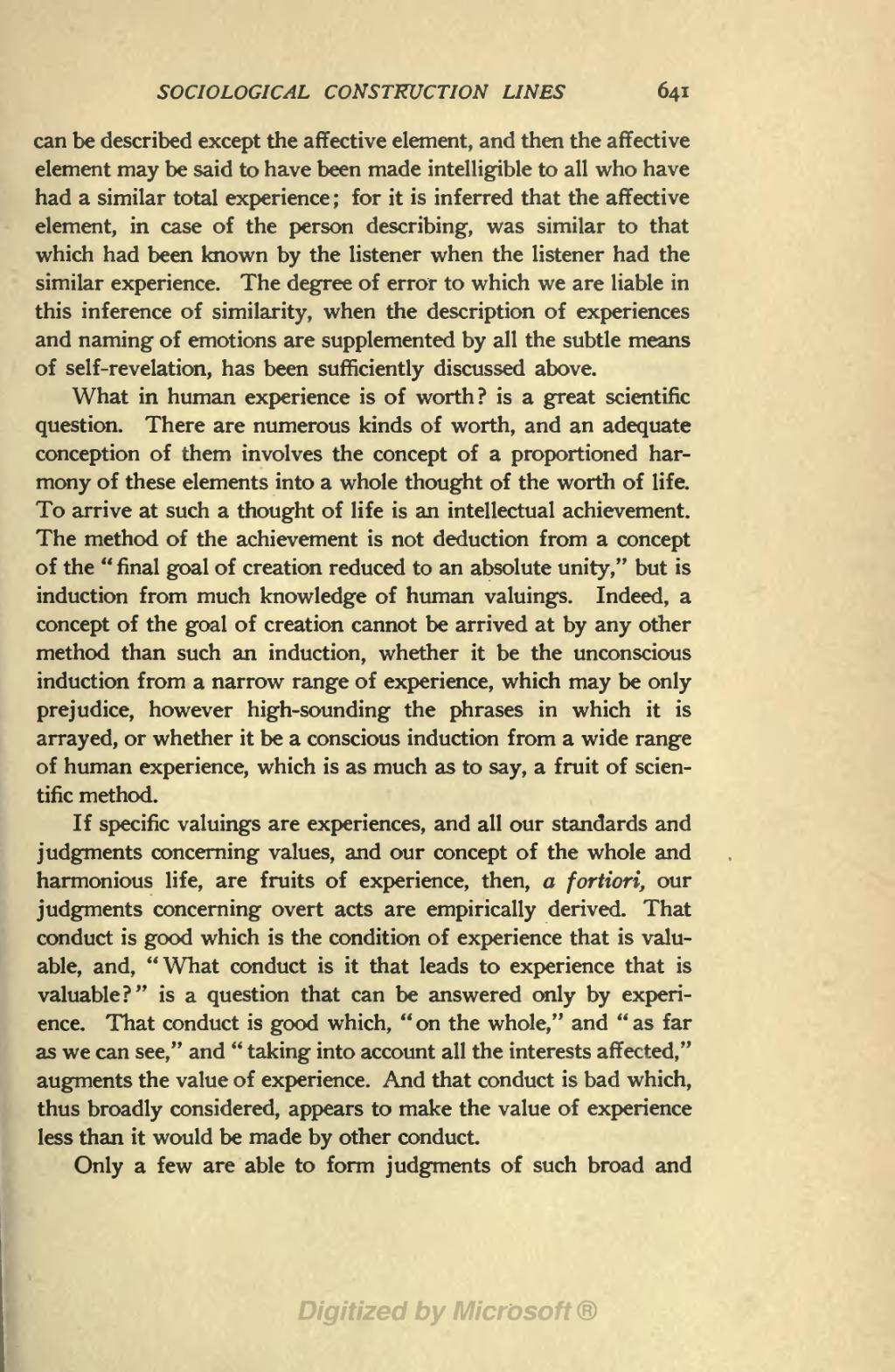SOCIOLOGICAL CONSTRUCTION LINES 641
can be described except the affective element, and then the affective element may be said to have been made intelligible to all who have had a similar total experience ; for it is inferred that the affective element, in case of the person describing, was similar to that which had been known by the listener when the listener had the similar experience. The degree of error to which we are liable in this inference of similarity, when the description of experiences and naming of emotions are supplemented by all the subtle means of self-revelation, has been sufficiently discussed above.
What in human experience is of worth? is a great scientific question. There are numerous kinds of worth, and an adequate conception of them involves the concept of a proportioned har- mony of these elements into a whole thought of the worth of life. To arrive at such a thought of life is an intellectual achievement. The method of the achievement is not deduction from a concept of the " final goal of creation reduced to an absolute unity," but is induction from much knowledge of human valuings. Indeed, a concept of the goal of creation cannot be arrived at by any other method than such an induction, whether it be the unconscious induction from a narrow range of experience, which may be only prejudice, however high-sounding the phrases in which it is arrayed, or whether it be a conscious induction from a wide range of human experience, which is as much as to say, a fruit of scien- tific method.
If specific valuings are experiences, and all our standards and judgments concerning values, and our concept of the whole and harmonious life, are fruits of experience, then, a fortiori, our judgments concerning overt acts are empirically derived. That conduct is good which is the condition of experience that is valu- able, and, "What conduct is it that leads to experience that is valuable?" is a question that can be answered only by experi- ence. That conduct is good which, " on the whole," and " as far as we can see," and " taking into account all the interests affected," augments the value of experience. And that conduct is bad which, thus broadly considered, appears to make the value of experience less than it would be made by other conduct.
Only a few are able to form judgments of such broad and
